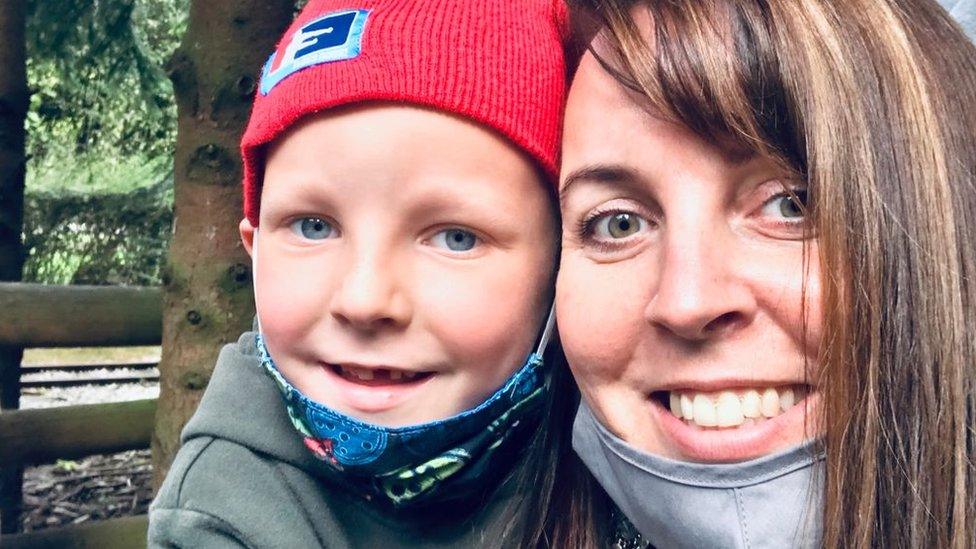The St Albans theatre group supporting neurodiversity on the stage
- Published
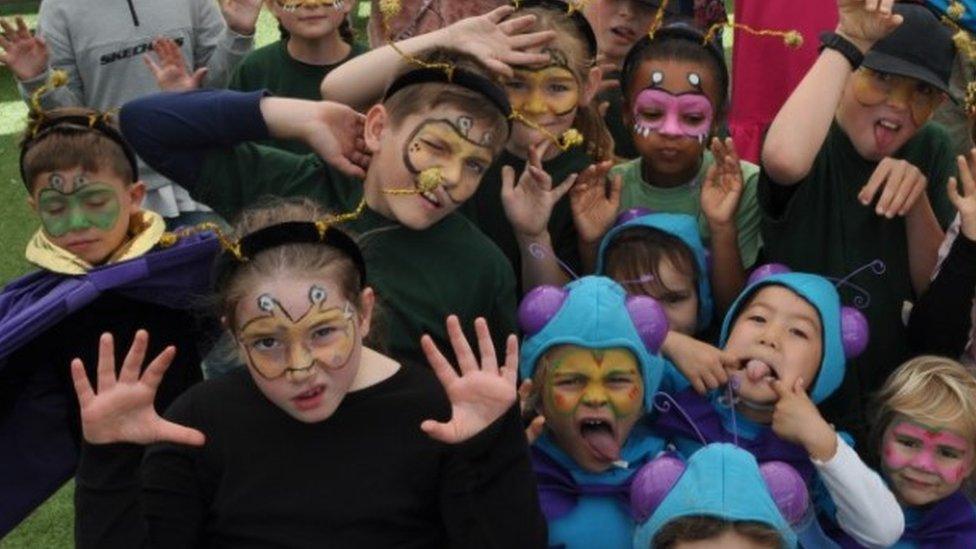
Best Theatre Arts catered for Ari by creating a role especially for him
Ari is eight years old, has autism and often feels left out. But when a theatre group created a special part for him in its production of Twelfth Night, Ari became one of the stars of the show. How can theatre help children like Ari thrive on stage?
Naomi Rovnick says despite the efforts of her son's school, Ari often feels "on the edge of things".
"This is so damaging to his self-esteem," she said.
"He is very, very bright but the way he processes instructions is different to the way most people give [those instructions].
"Knowing loads of facts is his superpower."
Ari is a member of Best Theatre Arts in St Albans.
The group's adaptation of William Shakespeare's Twelfth Night - WhatUWill - included a role which was created just for him.
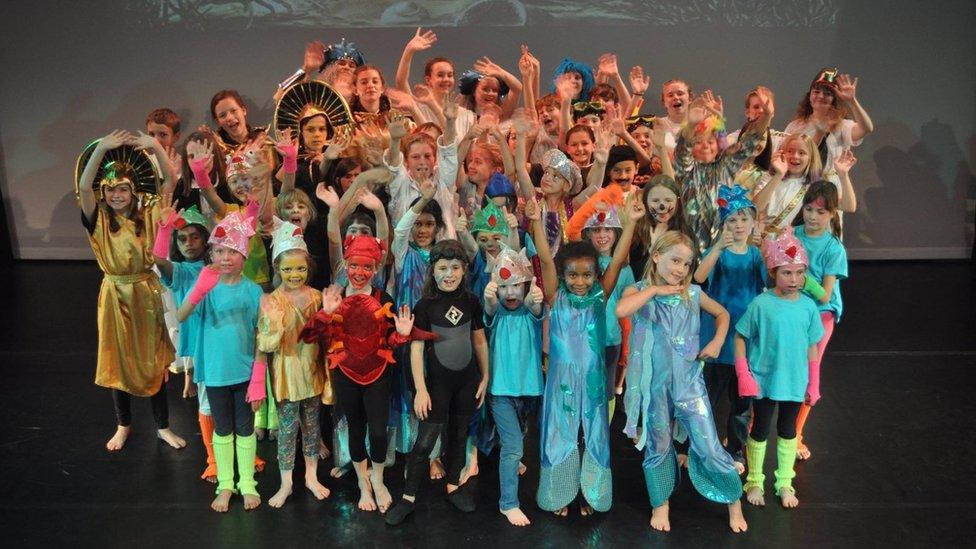
Best Theatre Arts write their own shows so they can be shaped around the cast's strengths
The part begins with Ari running onto the stage.
"He interrupts the dialogue to reel off lists of facts about the play," said Ms Rovnick, who was moved to tears when she saw his role. "He loves his part."
"They managed to include him by really understanding him and that's really special," she said.
"Mainstream groups often find it hard to include neurodiverse children but what Best has done is great - they brought his special interest into what they were doing so that he was not only included but motivated.
"At last somebody has helped my child to join in."
You might also be interested in:
Ari himself he likes the part because it "was created just for me" and "it's a character I would want to be in my everyday life".
"It's been easier than playing a part I might not have connected with," he said.
He added that he likes drama because "you can be funny and over the top and not worry about certain things that you might do in real life and maybe get a bit wrong".
"I easily know when it's my turn to talk in the play because there is a script to guide me," he said.
"Sometimes in real life I'm desperate to make a point in a conversation and I can't wait my turn and others talk for too long - but in drama it doesn't really matter because your lines are your lines and you can very easily play an active part."
Ari's mother tweeted about his experience and was amazed by the response.
To date it has more than 100,000 likes and has been retweeted nearly 7,000 times.
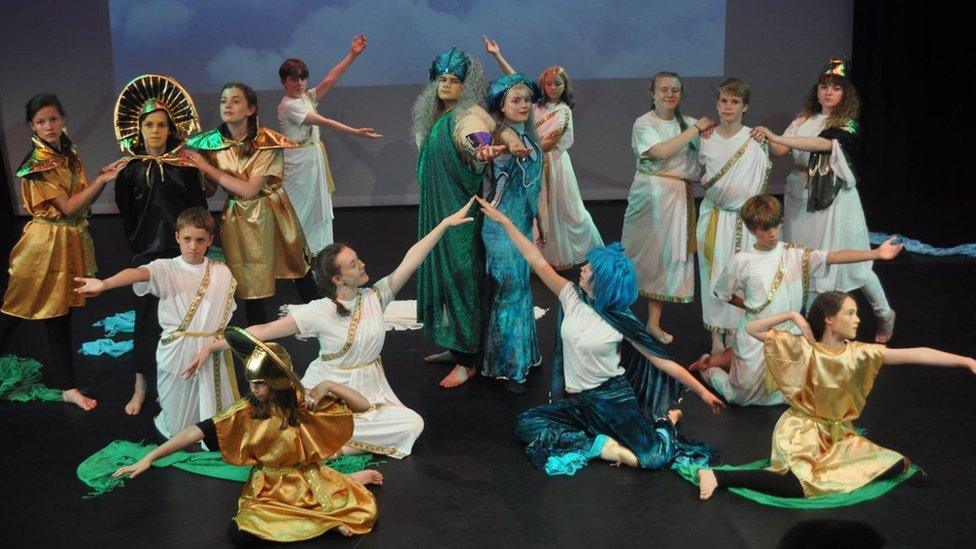
David Bevan, who founded Best Theatre Arts, says "every child is different"
But while Ari's family can afford for him to attend private drama classes, Ms Rovnick fears for other neurodiverse children who might "fall through the cracks".
The charity ADD-vance supports families affected by ADHD, autism or a related condition.
It said while the general understanding of autism has improved, the "challenges faced by intellectually-able autistic children in mainstream schools and services have become clearer".
A spokeswoman said: "The social and sensory demands made upon them in large, complex mainstream environments often don't suit their different way of communicating and interacting with the world.
"Additionally, there aren't a specific set of "reasonable adjustments" that work for all autistic children - it takes a lot of time and effort to get to know each individual child's strengths and challenges to work out how to make a setting truly inclusive for them.
"Sadly many settings don't have the knowledge, training, resources or will to do this.
"Those which do are often led by people with lived experience of neurodiversity who really understand the difference that inclusion can make for individual children and young people."
The charity said while it was great to see a mainstream drama group include Ari in this way, neurodiverse children are more often directed towards specialist groups, such as the Herts Inclusive Theatre (HIT).
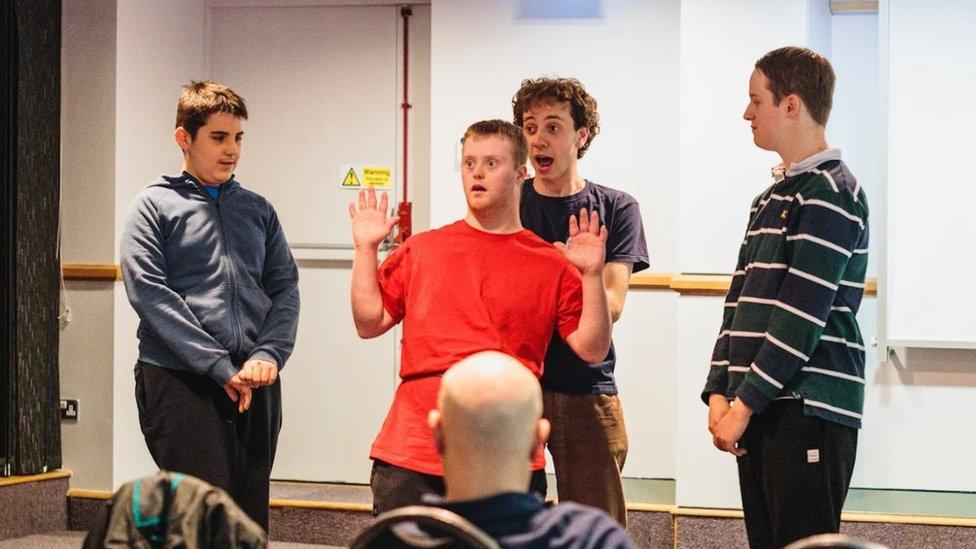
Herts Inclusive Theatre said it takes "a lot of time and effort to get to know each individual child's strengths"
Caroline Stevens, HIT's artistic director, said: "It can be difficult for them [children with a disability] to join a mainstream group.
"Some parents say their children are seen as naughty or disruptive and struggle [because of that impression].
"Some have tried and it hasn't really worked - either it's too fast for them or if they can't get their ideas out quickly, some groups don't have the time to sit and wait and listen.
"But it needs to be a different mind set from the start - we find out how we can support them."
Ms Stevens said that however people learn, they can "use drama and the arts as a tool to express themselves in ways they may not be able to in everyday life".
"Having the opportunity to showcase what they can do, rather than having to fit in with something they are unable to do, gives people, especially children with learning disabilities, the opportunity to shine and really be seen for themselves," she said.
One example is 33-year-old Edward Crook, who graduated from the London Academy of Dramatic Art (LAMDA) three years ago.
The Nottingham-born actor first trained as a doctor. It was while studying medicine that he realised he probably had attention deficit hyperactivity disorder (ADHD).
"At school I was never 'naughty', but I talked too much and day dreamed a lot," he said.
"I wasn't diagnosed [at school], but I tended to naturally gravitate towards art. It was the least regimented, so I don't know if that's why I felt like that."
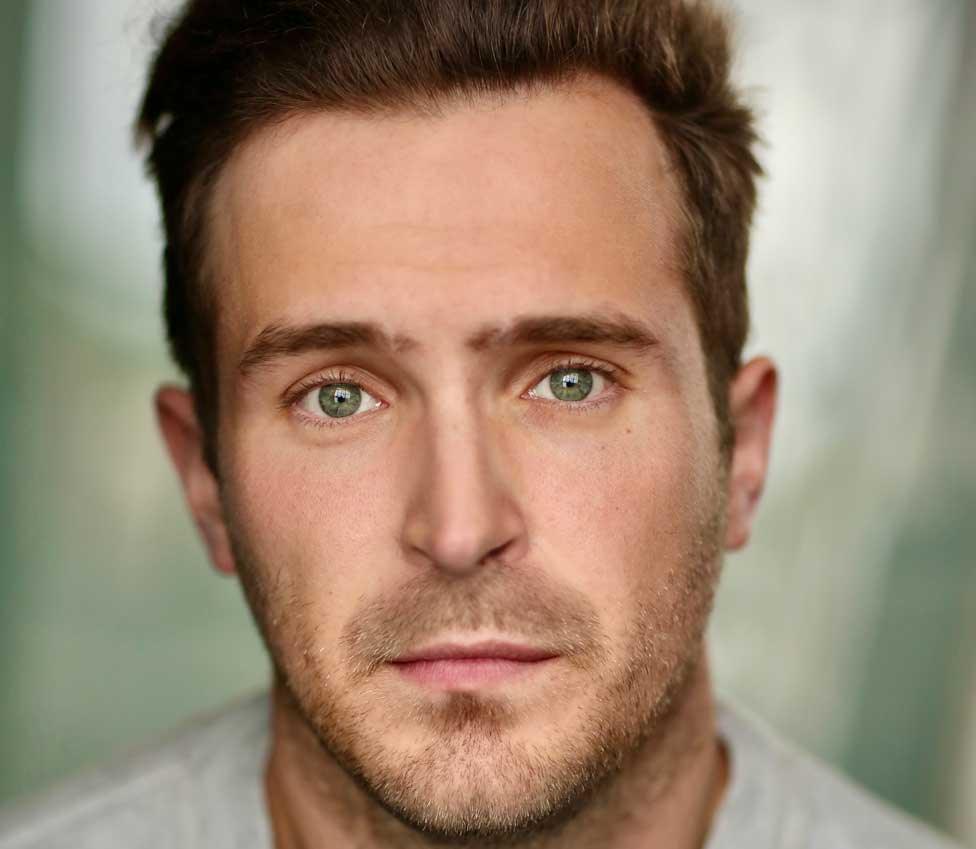
Actor Edward Crook said there "needs to be an understanding that not everyone learns in the same way"
He tells how drama was not made accessible to him beyond having the "odd small role".
"I think, for me, classroom teaching wasn't the best way of working," he said.
"I get a lot more from working on my own and working in a more practical way... it's just the education system doesn't always cater for that."
"When I went to LAMDA I said 'look I think I've got this (ADHD)' and they immediately got an Ed Psych in and we did a four hour assessment.
"I was actually diagnosed because of LAMDA."
He says that the drama school was "very practical and they were very good at supporting people".
"I find it hard to learn lines in a short time which is difficult when it comes to auditions but they helped me with that," he said.
"If I have a last minute audition I do struggle a bit but it doesn't affect my ability to do the job. I don't want to make excuses or apologise for it because it's just how my brain works. I just make sure I get to the first rehearsal knowing my lines."
Since graduating, Edward has worked on projects for HBO, Apple TV+, BBC, Sky, the British Film Institute and Amazon, and has performed in a variety of plays but when he is between parts he works in A&E as a doctor.
He agrees that drama as a subject is important because it "allows people to open up, play, and have fun, and it also enables you to work on skills for life".
"But there needs to be an understanding that not everyone learns in the same way," he said.
As a result of his experience, he and his educational psychologist partner, set up The Bigger Picture Training Company, external to deliver training to teachers and other professionals that work with neuro-diverse children to make them more aware of additional needs.
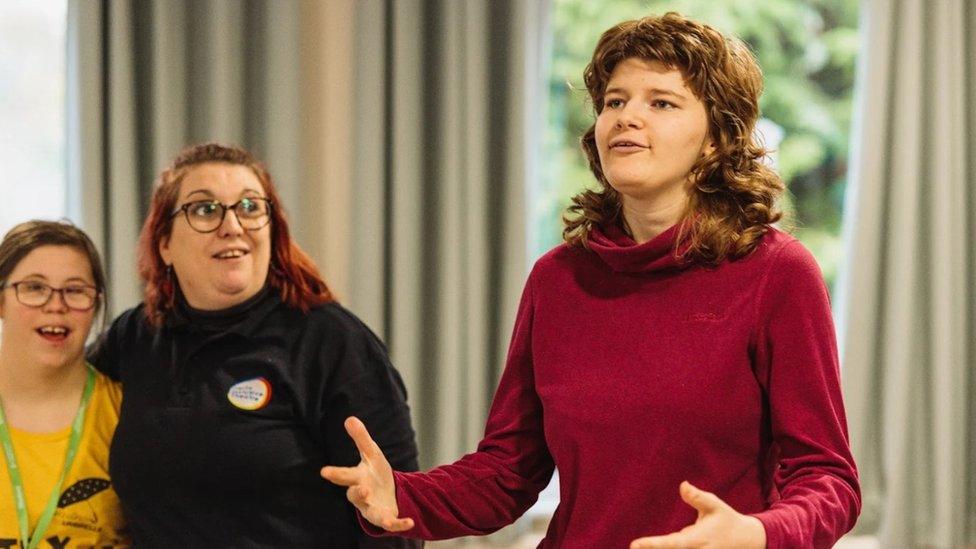
Caroline Stevens from HIT says that however people learn, they can "use drama and the arts as a tool to express themselves in ways they may not be able to in everyday life"
Olivia Atkinson, head of performing arts at Elstree Screen Arts Academy (ESA) said it is possible to cater for different needs in secondary schools and "it's about making all your resources available".
"Differentiation is massively important in performing arts," she said, "as everyone, whether they are neuro-diverse or not, learns in different ways - it's about how material can be catered to everyone."
She said sometimes students see their neuro-diversity as a weakness but at ESA "we ensure they see their differences as their strengths".
"Typically they are the most creative students, many of whom have not had the time to shine in mainstream," she said.
Ms Atkinson said one student "really goes into the detail" of characters and they allow him the time to do this. Other students find it challenging to understand emotion so teachers ask them to remember their own experiences of a feeling so they can relate to that.
"All it comes down to is giving them the time," she said.
David Bevan, who founded Best Theatre Arts with his wife Annette in 1998, said: "Every child is different.
"We try to understand these needs and work with them, rather than trying to make them conform to preconceived norms, and try to find chances to express themselves through performing arts."
As for Ms Rovnick, she would like to see the methods used for Ari taken into mainstream schools to help neurodiverse children.
"What they have done is adapt an environment to give a child what they need when they normally spend their life on the outside [of things].
"Lines, movement, coordination and instructions are challenging for [Ari]. But autistic children can and do make great actors.
"When it happens, I will post his Hamlet."

Find BBC News: East of England on Facebook, external, Instagram, external and Twitter, external. If you have a story suggestion email eastofenglandnews@bbc.co.uk
- Published8 September 2021
